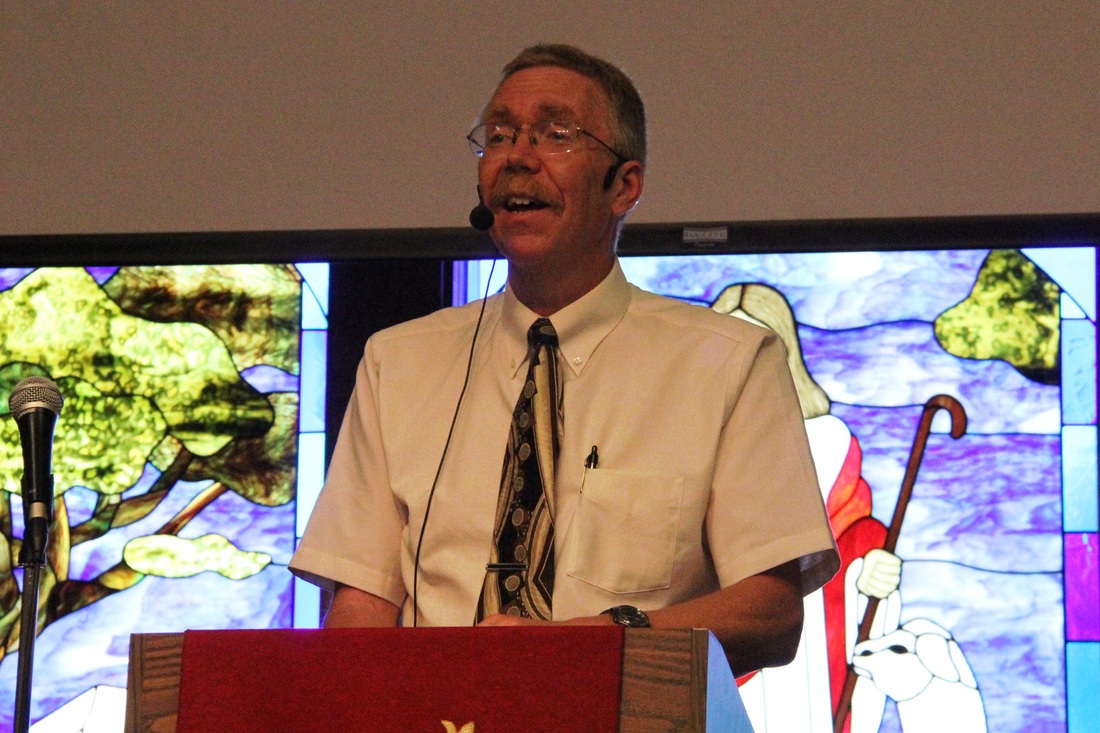
I recently became reacquainted with a thirty something year old man that I knew in his late teens and into his 20’s. I was disheartened when I was told about the time a few years ago his children were taken away, and the chatter among some of the case workers was that “people like him don’t have feelings.” This man has issues, and he has feelings. He was hurt. I told him I’d be proud for him to sit by me in church should he ever find the courage to attend. We tend to write off people we don’t understand.
I learn a lot from messed up people. They are real. Raw. It’s refreshing. The most painful thing about hanging out with really messed up people too much is the danger of realizing they are no different from me… I am just better at masking my craziness more than some…. The messed up people of this world provide lessons in faith. The Clothesline crew knows folks that have needs, they work to supply the needs, then how often these people who have little earthly wealth turn around and give away the little they have to those that have greater needs, so pretty soon they are back at the Clothesline needing more… there is a deep lesson in faith as I watch people who have far less then me give away out of the little they have…
The Lord’s Prayer includes the line, “Give us this day our daily bread.” It’s one thing for a person like me to pray that prayer who has a full cupboard, but it’s quite another to hear people pray that have nothing.
I was saddened this week to learn about a good friend that is now living on the streets in Bellingham, his health is not so good, I told the guys of the Men’s breakfast about him with instructions to keep an eye out for him, and if possible give him a hug when you spot him. About a year ago when I was helping him I stopped at my house, Sally and I got him a big box of vegetables. We spent 20 minutes in the garden. I have never seen anyone so refreshed in their spirit, I try hard not to take my time in the garden for granted. When it was time to leave I asked him if he needed anything else. Kind of a strange request. He said he needed new earrings. Without missing a beat Sally got out her stash of jewelery, he picked out half a dozen earrings Sally no longer uses, and off he went on top of the world: fresh vegetables and earrings, what else does a guy need. Whenever I see this man, he ALWAYS asks about Sally because he was so appreciative. A lesson in faith to appreciate the little things.
I’ll try and keep an explanation of this story simple. The best I can do is give the best explanation I can as I understand it, recognizing it is a hard to understand story and I could be wrong. As I studied this scripture I thought it is kind of figuring out how to catch a mole. There are a lot of solutions for catching moles because none of them quite make sense. I think most of us as we read through the Bible read this story, get confused about what it means, then quickly move on. The scripture is a story Jesus tells to his followers/disciples. Jesus often used stories to illustrate lessons in faith, lessons in how to follow Jesus. This is a story with a purpose.
The story is about a rich man that fires the manager of his money because he wasn’t a good manager. The rich man ask the manager to do one last task: get the books in order. The tricky manager reduces the amount of money owed to his master, thus making friends with those who now have a lower debt. The surprise is that the rich man, rather than getting upset with the manager, praises the tricky manager. Jesus then outlines principles to underscore worthwhile lessons from the tricky manager.
It’s a headscratcher because it is not obvious what the manager does that is praiseworthy…. However, the manager is praised so there must be something good.
We don’t have time to go over every theory. I share one idea that makes sense to me about the tricky manager and the lesson of faith. I believe this story is more about the rich man than it is his manager.
One of the major themes of the book of Luke is how to be a disciple of Christ. Whenever Luke says “rich” he has a negative tinge ~ “Rich” is less about the amount of money and more about any pride that goes with it. In Luke, a “rich” man is snooty. I know people of wealth who are humble. In Luke’s thinking, those people would not be “rich.”
The lesson Jesus is teaching his disciples makes more sense as we focus on the rich man. As disciples of Christ, Jesus does not want us to consider ourselves better than others, i.e. not to be rich, the arrogant sort of rich… The rich man in the story learns something from his money manager he is about to fire.
In my thinking, the rich man’s manager does something clever, something right. First he goes to a man who owes his master 900 barrels of olive oil ~ he cuts the debt in half. Then he knocks off 20% to the man who owes wheat. What some people think, that makes sense to me, is that the manager is setting an injustice right. Huge interest rates are not allowed on borrowed money, but if you want to be a stickler, the rich man wasn’t loaning money but rather products. What some folks think happened is that the first man was given 450 barrels of oil and told to repay 900. The tricky manager was merely reducing the debt owed to the original amount borrowed. Same with the wheat: “Here is 800 bushels of wheat, pay me back a 1000.” All the tricky manager is doing is resetting the amount owed back to the original loan. It’s brilliant. The master is impressed. The tricky manager gets in good with the debtors. Also, the Rich man can’t complain or he’d be found out that he was taking advantage of people by demanding way too much back.
Let me illustrate. Here is a chocolate bar. I know somebody who cannot resist chocolate. Connie, here is a chocolate bar. As repayment, I want two chocolate bars back tomorrow. (Pretend none of you know the agreement I just made with Connie.) Before Connie repays me, I fire my money manager, and I ask for an accounting of what I am owed. So my manager goes to Connie and says, you owe Pastor Carl two chocolate bars, tell you what, let’s make it a single chocolate bar since that is all he really loaned you anyway. It’s a brilliant strategy. The manager wins because he has a friend. Connie wins because the world is set right. And the last winner is Carl, the Chocolate baron, because I am “tricked” into doing what is right by my “tricky” manager that I just fired. I have learned a lesson from a messed up person to do the right thing.
READ Luke 16:8. This story is not about how to handle money. It is about faith and how to live as a disciple of Jesus Christ. Jesus wants us, the Rich Man, to grow in our faith by learning from the tricky manager. Maybe one lesson is as simple as people are more important than things. Didn’t this tricky manager teach this to the rich boss? The rich man, if he heeds the lesson of the tricky manager, will overcome his self focused ways. By focusing on the Rich Man, this helps explain Luke 16:14-15. READ.
To the religious leaders, the Rich Man is a hero because they also have a love of money. To be a disciple of Christ is to get your priorities straight, it is to get your heart right. I am guessing the religious leaders see nothing commendable about the tricky money manager. They think the rich man has nothing to learn. It’s hard to grow in your faith if you assume you have it all figured out.
Jesus wants us to grow in our commitment to him. One of the important lessons is that a way to become a more thoughtful disciple is to learn from imperfect people. One of the reasons I like hanging out with broken people is because I learn about survival, I learn about giving, I learn about loving, I learn about tenacity. The cross on the wall was made by a broken man that was lost in his addictions… A dishonest money manager has a lesson to teach his snobby boss in how to treat people rightly and justly.
Jesus draws more lessons from this story:
READ Luke 16:9. Bless others, don’t use them. I admire the way a community of broken people can bless others in the group… Jesus is saying be more like the shrewd manager, use your resources to benefit and bless others, not take advantage of them by unfair practices… don’t use people, build them up.
READ Luke 16:10-12. Jesus is talking about the rich man who needs to learn what’s most important. Worldly wealth is the small matter! (“whoever can be trusted with very little.”) It’s a lie when we think the most successful people are those that have the most stuff. Money is the little things and the things of God are the bigger thing. If you use people, like the rich man in the story uses people, then you will take God for granted too. But if you bless people, then you are more in sinc with the heart of God… This is a lesson the rich man needs to learn from his tricky manager ~ the lesson of priorities, being faithful with what is most important! How you treat others is an indication of your heart and a reflection of how God is able to bless you.
READ Luke 16:13 “No one can serve to masters.” If God is your true master what he values will be reflected in your relationships with others…. It’s like Jesus is saying in order to measure your commitment to God, don’t look at your words, your good ideas, your theories, but look at the heart, look at your acts of service to the people in your life. The rich man was taking advantage of those to whom he loaned goods, which is a reflection of his heart.
Jesus Christ invites us to be a life long student. That includes practicing the ways of God and having priorities that are in keeping with God’s priorities. To be a follower of Christ always means blessing others.
What Jesus seems to be saying in this story is that there are surprisingly great examples for you to learn the lessons of discipleship: the messy people who don’t have it all together on this earth, like the tricky manager, who did better for his masters debtors than the master. The tricky manager cared about the debtors, he was fair, he gave them a break… learn from the messy people, the real people, the raw people. Pay attention to those that don’t have it all together because they just may have greater insight and better priorities. Money/power/status is not that important in the greater scheme of things, but doing right for other people is always in keeping with the heart of God. Amen.


 RSS Feed
RSS Feed